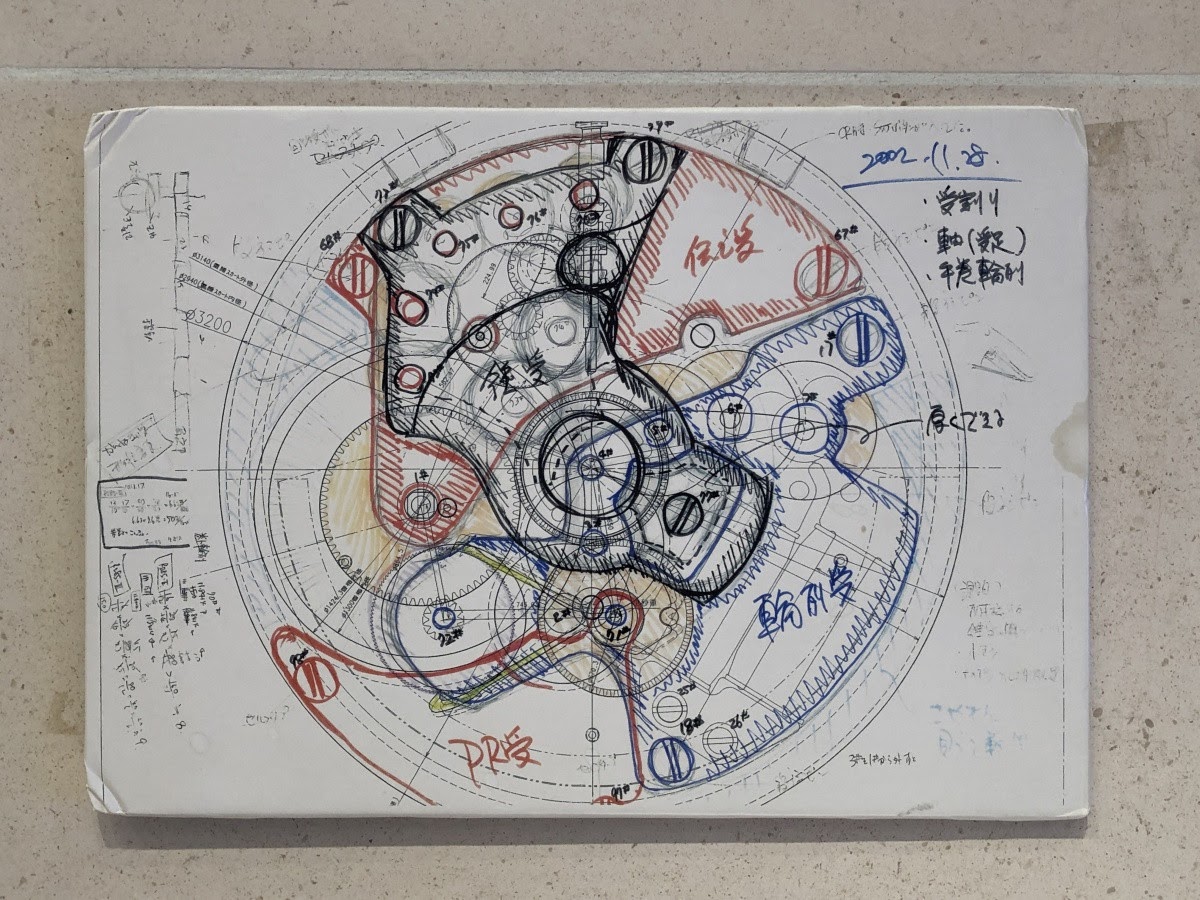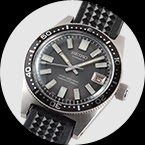
An event with Seiko in Paris
foversta


I had the opprtunity to attend a few days ago an event organized by the Seiko France team in the Seiko boutique of Paris. We are very fortunate in France to have several Seiko boutiques in Paris or in other cities. They give the proof of the ambition of the Seiko Group in this country.
The aim of the event was to attend a presentation of the assembly process of the Spring Drive movement done by a watchmaker coming from Japan: Takuya Nishinaka. And believe me, he was the right person to show us this process since he is one of the best specialists of the movement and the trainer of a lot of watchmakers!
Beyond this presentation, the objective was to explain to the guests that the Spring Drive movement is very similar to a pure mechanical movement. Actually, only a few details differ in their respective lay-outs. The key difference lays in the regulating organ. Actually, the movement combines three types of energy. The mechanical power comes from the mainspring. Obviously, the watchmaker will have to set the barrel and the ratchet during the assembly process. The electrical power comes from the glide wheel and activates the quartz oscillator and the Integrated Circuit. But it is very important to say that the energy which is required is very low. Then the electromagnetic power is used to regulate the glide wheel. It works like a brake if the wheel goes too fast. it ensures the constant behavior of the hands.
The Spring Drive movement can be considered as the meeting point between two worlds: the worlds of mechanical and electronic movements. And we could feel it during the presentation. Let's speak frankly: very often some clients are confused between different types of movements: kinetic, quartz, Spring Drive, mechanical... and many times, the Spring Drive movement appears to be an enhanced quartz movement and the fluid behevior of the second hand seems to give the proof of this idea. But in the end, it is something else. Again, it is the combination of the best from two worlds. And Takuya Nishinaka wanted to explain it to us. His presentation was successful because some guests changed their points of view about the movement. It is a pity: a lot of clients are fascinated by the continuous second hand but then seem to be reluctant to pay a quite significant amount of money for a "quartz" movement. And they realized that the Spring Drive movement is something else.
Moreover, even if Takuya Nishinaka worked on a movement of a Grand Seiko watch, the Spring Drive is also available in the Seiko world and one of the latest Presage pieces uses it... it is a perfect way to enjoy this technology wthout spending too much!
As you understood it, this event gave the opportunity to Seiko to work on its image and to confirm its ambition. Step by step, Seiko improves the overall quality of its products and even the entry level prices are increasing.
Let's browse the pictures I took during the event at the boutique.
Everything is ready for a great party with japanese flavors!

I hope that things are becoming clearer now. 


Matcha tea is healthy! So I couldn't miss the opportunity to drink it!

This is not a mere picture: the quality of the displays is improving thanks to a better care to details. Another proof of Seiko ambition.

I really like a lot this Seiko Presage, powered by a Spring Drive movement.

I told you there were some japanese flavors!

Chef Hirose Abe did a great job! I approved everything!

The stars of the event: Riho Nozuyama and Takuya Nishinaka, coming from Japan:

The Seiko France team explained the key differences between a mechanical movement and the Spring Drive movement:

And then Takuya Nishinaka started to assemble the movement. The coils were set.


Then the barrel:

After having put the wheels train, the watchmaker put the bridge:

Sorry, I jumped several stages and I went directly to the date wheel and dial setting:


You can see the hidden Grand Seiko seal!

One of the Grand Seiko calibers dedicated to training & presentation:

The Grand Seiko seal:

This Presage (powered by an automatic movement) offers a very subtle dial:

Another exemple of a Seiko wach powered by a Spring Drive movement:

Beauty from the past... and also powered by a Spring Drive movement. I had the opportunity to buy it. I didn't do it. I regret it!

The beauty of the Spring Drive movement of this Credor watch:

And it is a very lovely piece. I often find the Credor pieces too singular and not designed to match my taste. For example, the Grand Seiko watches are much more appealing to me. But this one... is just lovely and charming!

I would like to thank a lot the Seiko France team for this nice event. The guests appreciated a lot the presentation by the watchmaker and the key features of the Spring Drive movements were well explained thanks to the involvement of Alain Vaudon, the Seiko France watchmaker. It is exactly the type of event I like: not just bla bla and finger food. It was educational and I hope that more like this one will come.
Fr.Xavier
Comments:

Jay (Eire) October 31st, 2019-17:46
I don’t speak French but.. ...un système règulateur très prècis is pretty easy to understand! I had great affection for GS in general for a long time, but own only vintage and historical reissues (all mechanical). The only modern GS I would like to own is a Spring Drive but I have ...

mahesh November 1st, 2019-01:52
Thanks for sharing Fx I think recent times Seiko makes a lot of effort to educate about Spring drive as many enthusiasts consider it as ‘non-mechanical’ movement - good thing! I love that movement dwg - engineer troubles 😜 Merci encore! Cdt, Mahesh.,
0-10-2
Load More Comments
Next Article

cazalea


Seiko Professional Dive Watch Developments
cazalea


FIRSTS 1965 Japan’s first 150M Diver’s watch Japan’s first diver’s watch was the self-winding (shake to wind) 150M Diver. The launch of this model marked the beginning of Seiko’s pursuit for reliability and safety that was to come in future diver’s watch models. In 1966, the watch proved its reliability and capability in the 8th Japanese Antarctic Research Expedition. 1968 The Diver’s 300M, with the hi-beat caliber (10 vibrations per second) Increasing the number of vibrations in the balance, the Seiko hi-beat ...
© 2017 - WatchProZine